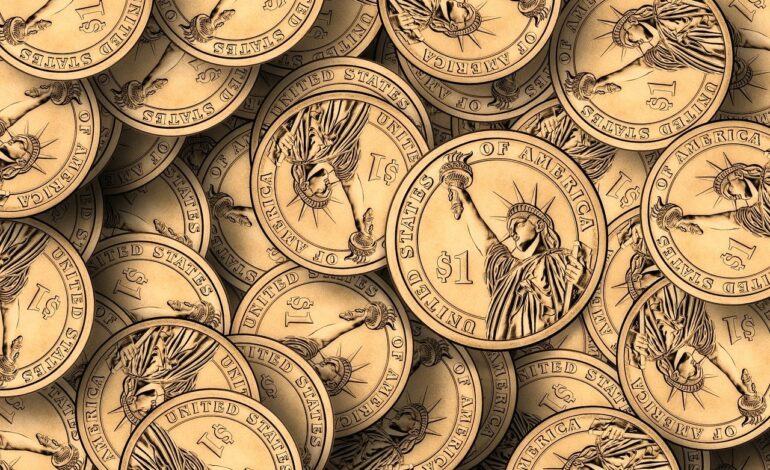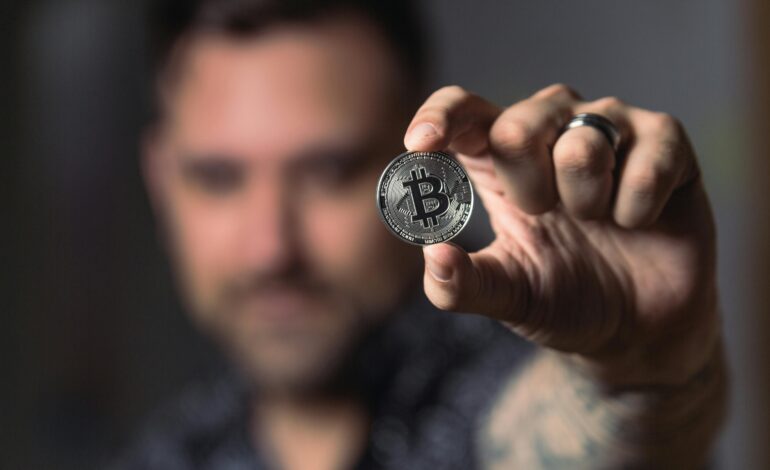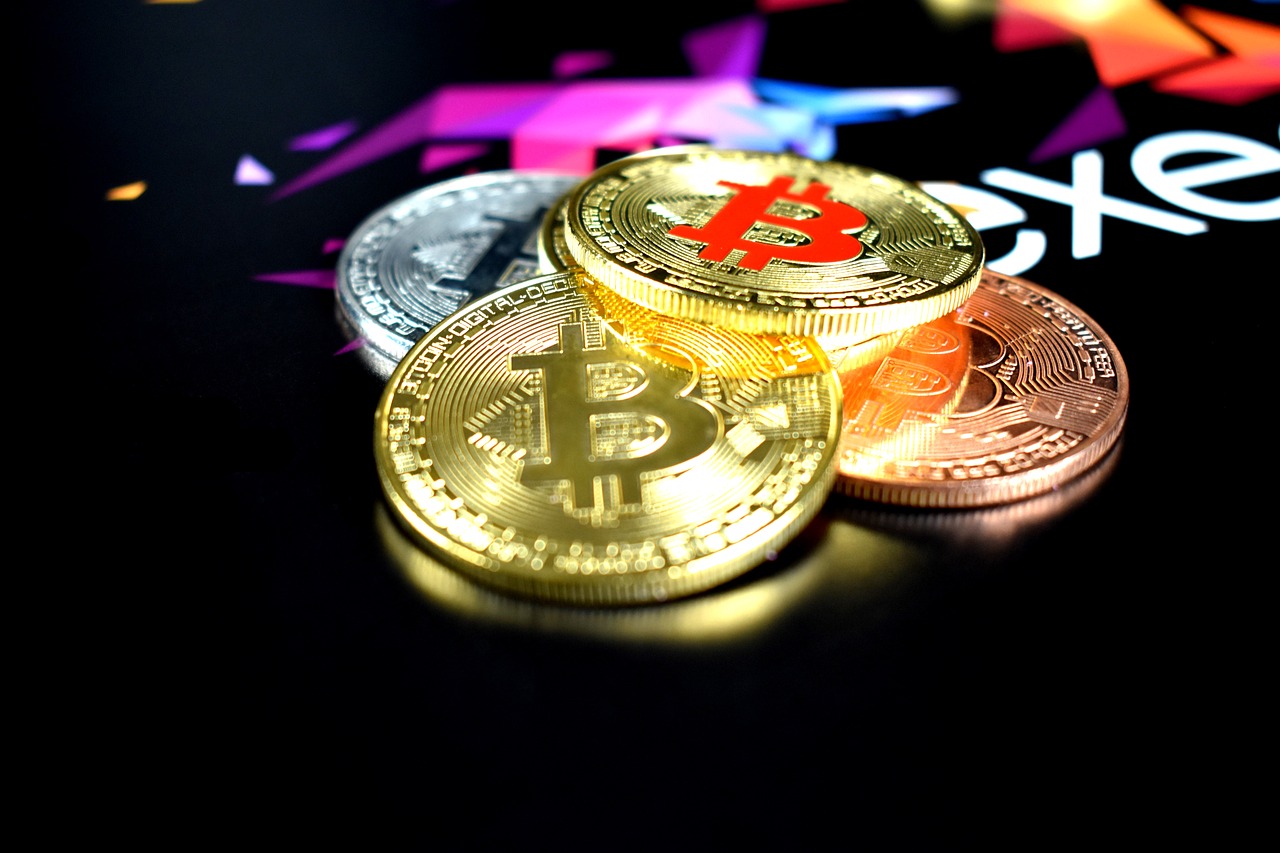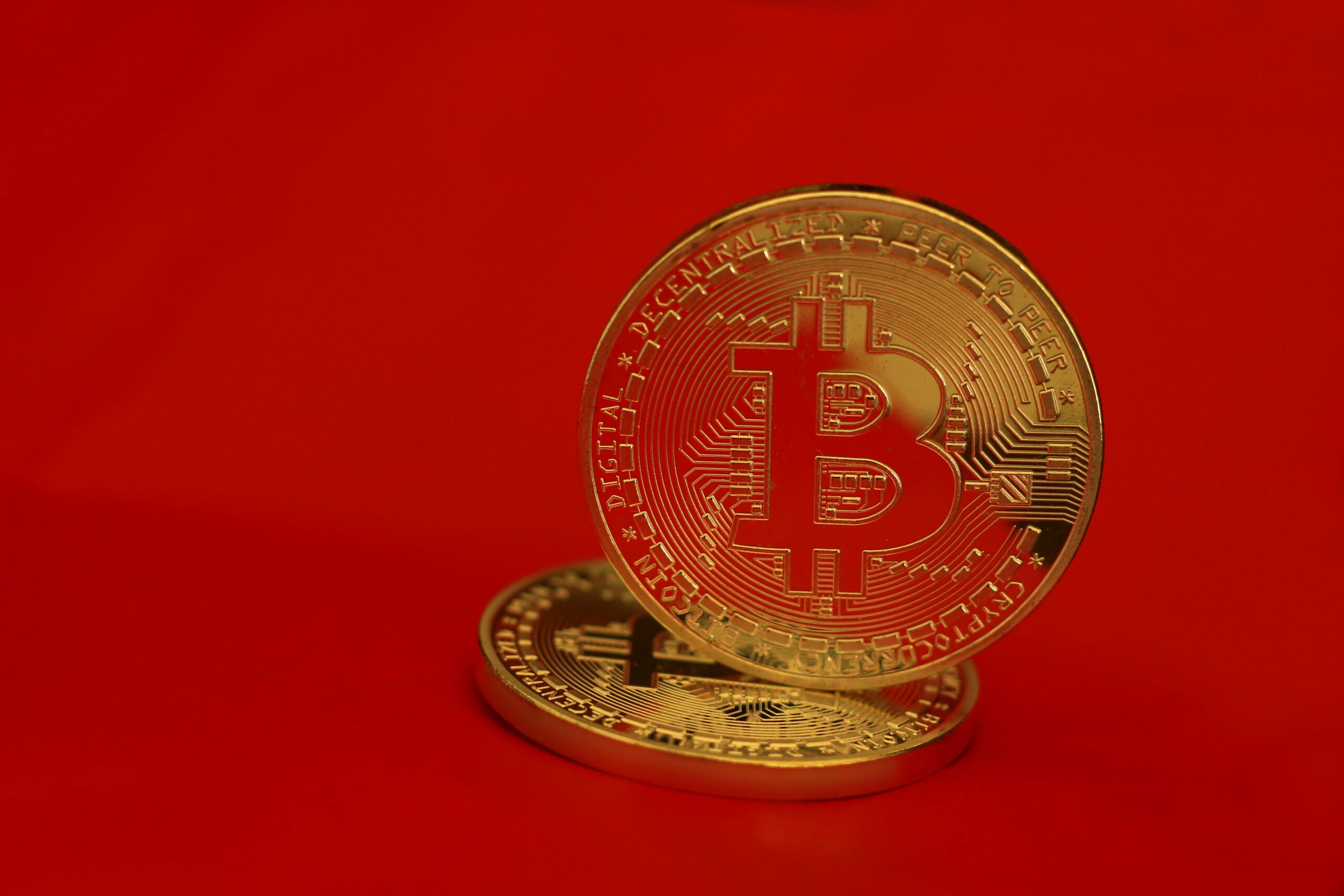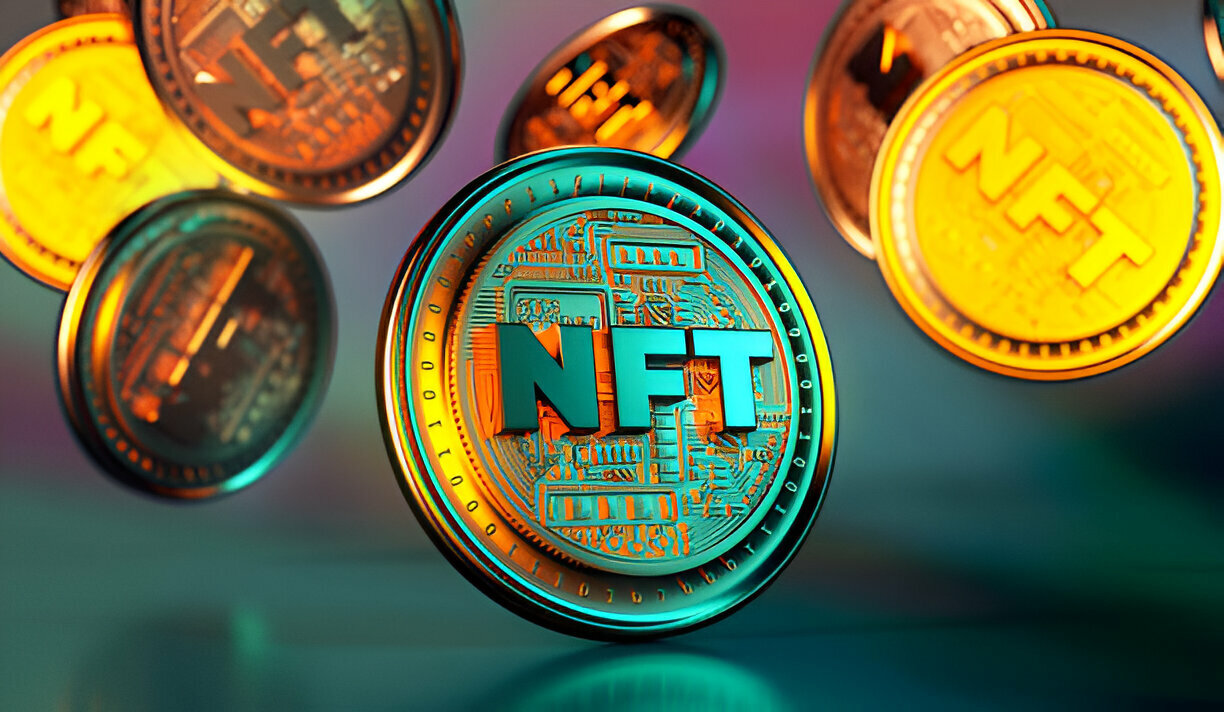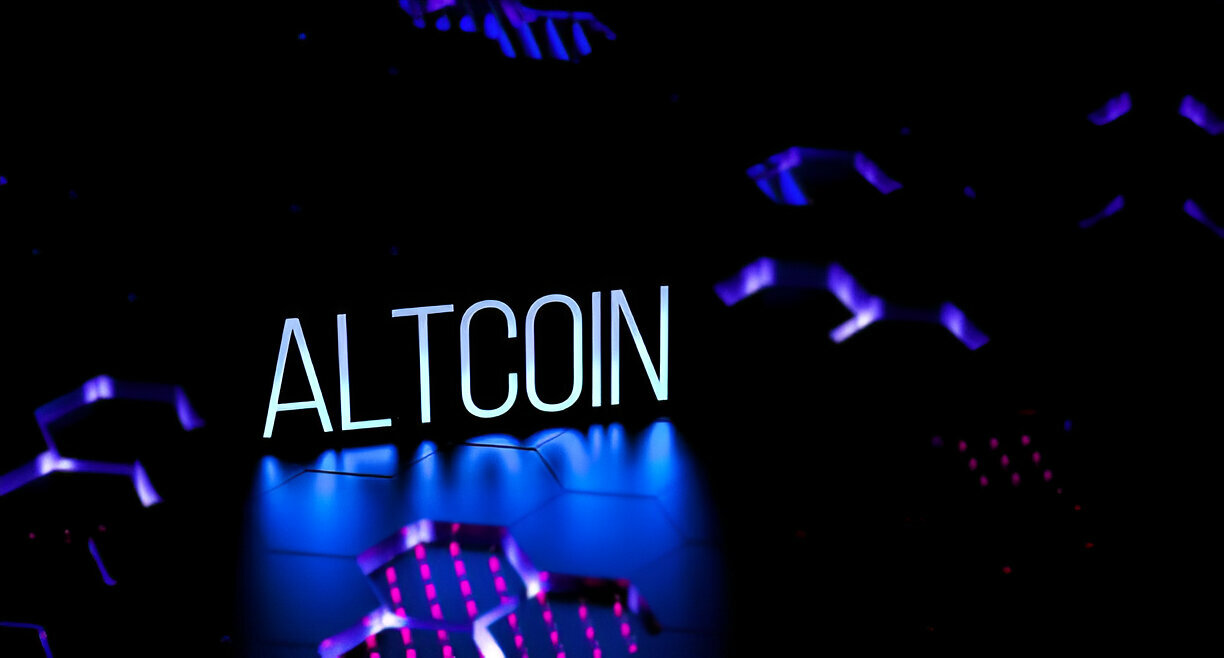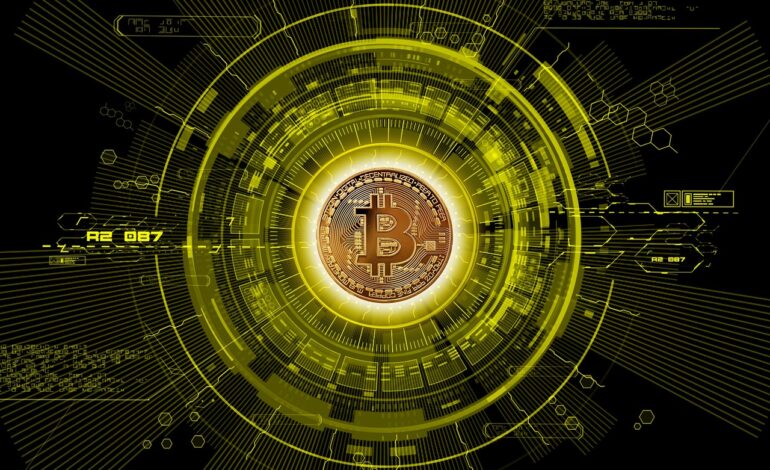
NFTs have exploded into the digital world, shaking things up from art to music and beyond. But what exactly are they, and why are they fetching such high prices? This deep dive explores the fascinating world of NFTs, explaining their importance and potential for anyone curious about this groundbreaking technology.
Demystifying NFTs: Owning the Digital
NFTs, or Non-Fungible Tokens, are unique digital assets unlike fungible cryptocurrencies like Bitcoin. Each NFT contains distinct information, making it one-of-a-kind. Blockchain technology, the same system powering crypto, underpins this uniqueness. When you own an NFT, you possess a verifiable certificate of authenticity and ownership stored on the blockchain.
The Rise of Digital Ownership
Digital ownership isn’t new, but NFTs have propelled it into the mainstream. Traditionally, digital files could be endlessly copied without quality loss, making ownership and value difficult to establish. NFTs solve this by assigning a unique token to a digital file, transforming it into a verifiable asset. This has significant implications for creators, enabling them to monetize their work in innovative ways.
The Power of Blockchain
Blockchain technology is the backbone of NFTs. This decentralized digital ledger records all NFT transactions across a network of computers. Every NFT purchase or sale is permanently etched on the blockchain, ensuring transparency and security. The decentralized nature makes altering or forging records incredibly difficult, safeguarding NFT authenticity and ownership.
What Makes NFTs Unique?
Several key properties distinguish NFTs:
- Indivisibility: Unlike a Bitcoin, you cannot split an NFT into smaller parts.
- Distinctive Identity: Each NFT has a unique digital signature, setting it apart from any other token.
- Traceable Provenance: NFTs offer a publicly accessible ownership history on the blockchain, providing a verifiable record.
These properties collectively contribute to the rarity and value of NFTs.
NFTs Transforming Industries
- Art World Revolution: Digital artists can now create and sell their work as NFTs, ensuring proper compensation. Beeple’s record-breaking $69 million NFT sale at Christie’s auction exemplifies NFTs’ potential as valuable assets. Additionally, artists can earn royalties on resales, creating a continuous revenue stream.
- Music Industry Shakeup: Musicians can tokenize albums, singles, or even concert tickets, offering fans a new way to own a piece of their work. Kings of Leon released their latest album as an NFT, providing exclusive perks to buyers. This approach fosters deeper fan connections while ensuring fair compensation for musicians.
- Gaming Gets Real: The gaming industry has embraced NFTs, creating unique in-game items players can own, trade, or sell. Games like Axie Infinity and Decentraland have built entire economies around NFTs, allowing players to earn real money through gameplay. These digital assets range from rare characters and powerful weapons to virtual real estate, offering endless customization and investment opportunities. NFTs empower players with true ownership of their digital items, enhancing the overall gaming experience.
- Sports Collectibles Go Digital: Sports memorabilia has long been a passion, and NFTs are bringing it to the digital realm. Platforms like NBA Top Shot allow fans to buy, sell, and trade officially licensed NBA highlights as NFTs. Blockchain authentication ensures the rarity and value of these digital collectibles. NFTs offer fans a new way to engage with their favorite teams and players while creating a modern collectible market.
- Real Estate in Virtual Worlds: NFTs are making their mark in the real estate sector, particularly in virtual worlds like Decentraland and Cryptovoxels. Here, users can buy, sell, and develop virtual land as NFTs. These virtual properties can be used for various purposes, from creating virtual galleries and hosting events to simply holding them as investments. While owning virtual land might seem strange, the demand for virtual real estate is expected to grow as digital experiences become more immersive.
Addressing Environmental Concerns
Despite their benefits, NFTs face criticism for their environmental impact. The significant computational power required by the underlying blockchain technology leads to high energy consumption. Efforts are underway to address these concerns. Some blockchain networks are transitioning to more energy-efficient mechanisms, while others are exploring carbon offset initiatives to mitigate their environmental impact.
A Glimpse into the NFT Future
The future of NFTs is bright, brimming with potential for innovation and growth. As technology advances, expect to see NFT integration across diverse industries, from fashion and real estate to education and healthcare. NFTs have the potential to revolutionize how we think about ownership, value, and authenticity in the digital age. They remain a fascinating and rapidly evolving facet of blockchain technology, offering exciting opportunities for creators and collectors alike.
The Takeaway: Dive into the NFT Universe
NFTs are more than just a fad; they represent a significant shift in how we perceive and value digital assets. By leveraging blockchain technology, NFTs provide a secure and transparent

 Bitcoin
Bitcoin  Ethereum
Ethereum  Tether
Tether  XRP
XRP  USDC
USDC  Solana
Solana  TRON
TRON  Lido Staked Ether
Lido Staked Ether  Dogecoin
Dogecoin  Figure Heloc
Figure Heloc  Bitcoin Cash
Bitcoin Cash  WhiteBIT Coin
WhiteBIT Coin  Cardano
Cardano  USDS
USDS  Wrapped stETH
Wrapped stETH  LEO Token
LEO Token  Hyperliquid
Hyperliquid  Wrapped Bitcoin
Wrapped Bitcoin  Ethena USDe
Ethena USDe  Binance Bridged USDT (BNB Smart Chain)
Binance Bridged USDT (BNB Smart Chain)  Chainlink
Chainlink  Canton
Canton  Monero
Monero  Stellar
Stellar  Wrapped eETH
Wrapped eETH  USD1
USD1  Zcash
Zcash  Rain
Rain  sUSDS
sUSDS  Hedera
Hedera  Litecoin
Litecoin  Coinbase Wrapped BTC
Coinbase Wrapped BTC  Dai
Dai  PayPal USD
PayPal USD  Avalanche
Avalanche  WETH
WETH  Shiba Inu
Shiba Inu  Sui
Sui  Toncoin
Toncoin  USDT0
USDT0  Cronos
Cronos  World Liberty Financial
World Liberty Financial  Tether Gold
Tether Gold  PAX Gold
PAX Gold  Polkadot
Polkadot  MemeCore
MemeCore  Uniswap
Uniswap  Ethena Staked USDe
Ethena Staked USDe  Mantle
Mantle  Aave
Aave  Pepe
Pepe  BlackRock USD Institutional Digital Liquidity Fund
BlackRock USD Institutional Digital Liquidity Fund  Bittensor
Bittensor  Aster
Aster  Falcon USD
Falcon USD  OKB
OKB  Bitget Token
Bitget Token  Circle USYC
Circle USYC  Global Dollar
Global Dollar  syrupUSDC
syrupUSDC  Pi Network
Pi Network  HTX DAO
HTX DAO  Sky
Sky  Ripple USD
Ripple USD  Ethereum Classic
Ethereum Classic  NEAR Protocol
NEAR Protocol  Ondo
Ondo  Internet Computer
Internet Computer  BFUSD
BFUSD  Pump.fun
Pump.fun  Worldcoin
Worldcoin  Gate
Gate  POL (ex-MATIC)
POL (ex-MATIC)  KuCoin
KuCoin  Cosmos Hub
Cosmos Hub  Jupiter Perpetuals Liquidity Provider Token
Jupiter Perpetuals Liquidity Provider Token  Quant
Quant  Ethena
Ethena  Superstate Short Duration U.S. Government Securities Fund (USTB)
Superstate Short Duration U.S. Government Securities Fund (USTB)  Midnight
Midnight  Jito Staked SOL
Jito Staked SOL  Algorand
Algorand  NEXO
NEXO  USDtb
USDtb  Binance-Peg WETH
Binance-Peg WETH  Rocket Pool ETH
Rocket Pool ETH  Official Trump
Official Trump  Spiko EU T-Bills Money Market Fund
Spiko EU T-Bills Money Market Fund  Binance Bridged USDC (BNB Smart Chain)
Binance Bridged USDC (BNB Smart Chain)  Render
Render  Wrapped BNB
Wrapped BNB  Filecoin
Filecoin  Function FBTC
Function FBTC  Janus Henderson Anemoy AAA CLO Fund
Janus Henderson Anemoy AAA CLO Fund  Aptos
Aptos  VeChain
VeChain  OUSG
OUSG  syrupUSDT
syrupUSDT  USDD
USDD  pippin
pippin  Ondo US Dollar Yield
Ondo US Dollar Yield  Binance Staked SOL
Binance Staked SOL  Arbitrum
Arbitrum  Beldex
Beldex  Bonk
Bonk  Usual USD
Usual USD  Janus Henderson Anemoy Treasury Fund
Janus Henderson Anemoy Treasury Fund  USDai
USDai  Polygon Bridged USDC (Polygon PoS)
Polygon Bridged USDC (Polygon PoS)  GHO
GHO  Solv Protocol BTC
Solv Protocol BTC  Jupiter
Jupiter  Lombard Staked BTC
Lombard Staked BTC  Sei
Sei  A7A5
A7A5  Stable
Stable  clBTC
clBTC  TrueUSD
TrueUSD  Dash
Dash  Stacks
Stacks  EURC
EURC  Pudgy Penguins
Pudgy Penguins  StakeWise Staked ETH
StakeWise Staked ETH  Tezos
Tezos  Virtuals Protocol
Virtuals Protocol  Kinetiq Staked HYPE
Kinetiq Staked HYPE  tBTC
tBTC  PancakeSwap
PancakeSwap  Chiliz
Chiliz  WrappedM by M0
WrappedM by M0  Story
Story  Decred
Decred  Lighter
Lighter  Optimism
Optimism  Artificial Superintelligence Alliance
Artificial Superintelligence Alliance  Kinesis Gold
Kinesis Gold  Mantle Staked Ether
Mantle Staked Ether  MYX Finance
MYX Finance  Curve DAO
Curve DAO  Polygon PoS Bridged DAI (Polygon POS)
Polygon PoS Bridged DAI (Polygon POS)  Resolv wstUSR
Resolv wstUSR  Humanity
Humanity  COCA
COCA  JUST
JUST  c8ntinuum
c8ntinuum  Bitcoin SV
Bitcoin SV  Liquid Staked ETH
Liquid Staked ETH  BitTorrent
BitTorrent  Arbitrum Bridged WBTC (Arbitrum One)
Arbitrum Bridged WBTC (Arbitrum One)  LayerZero
LayerZero  Gnosis
Gnosis  Ether.fi
Ether.fi  AINFT
AINFT  Wrapped Flare
Wrapped Flare  Kaia
Kaia  Sun Token
Sun Token  L2 Standard Bridged WETH (Base)
L2 Standard Bridged WETH (Base)  Pyth Network
Pyth Network  Steakhouse USDC Morpho Vault
Steakhouse USDC Morpho Vault  Injective
Injective  FLOKI
FLOKI  SPX6900
SPX6900  Celestia
Celestia  Binance-Peg XRP
Binance-Peg XRP  The Graph
The Graph  Ether.Fi Liquid ETH
Ether.Fi Liquid ETH  PRIME
PRIME  Renzo Restaked ETH
Renzo Restaked ETH  IOTA
IOTA  JasmyCoin
JasmyCoin  sBTC
sBTC  ADI
ADI  Aerodrome Finance
Aerodrome Finance  Maple Finance
Maple Finance  Jupiter Staked SOL
Jupiter Staked SOL  crvUSD
crvUSD  Savings USDD
Savings USDD  Lido DAO
Lido DAO  Conflux
Conflux  Helium
Helium  Marinade Staked SOL
Marinade Staked SOL  Legacy Frax Dollar
Legacy Frax Dollar  Arbitrum Bridged WETH (Arbitrum One)
Arbitrum Bridged WETH (Arbitrum One)  Olympus
Olympus  DoubleZero
DoubleZero  Starknet
Starknet  Telcoin
Telcoin  Staked Aave
Staked Aave  Monad
Monad  Ethereum Name Service
Ethereum Name Service  Stader ETHx
Stader ETHx  River
River  ZKsync
ZKsync  AB
AB  BTSE Token
BTSE Token  dogwifhat
dogwifhat  Lorenzo Wrapped Bitcoin
Lorenzo Wrapped Bitcoin  The Sandbox
The Sandbox  Axie Infinity
Axie Infinity  GTETH
GTETH  Neutrl USD
Neutrl USD  YLDS
YLDS  Spiko US T-Bills Money Market Fund
Spiko US T-Bills Money Market Fund  USDa
USDa  Trust Wallet
Trust Wallet  Plasma
Plasma  AUSD
AUSD  Ultima
Ultima  Theta Network
Theta Network  Pendle
Pendle  Blockchain Capital
Blockchain Capital  Ape and Pepe
Ape and Pepe  Onyxcoin
Onyxcoin  NEO
NEO  Fartcoin
Fartcoin  Zebec Network
Zebec Network  Staked USDai
Staked USDai  Decentraland
Decentraland  GALA
GALA  SwissBorg
SwissBorg  Falcon Finance
Falcon Finance  Compound
Compound  Basic Attention
Basic Attention  MimbleWimbleCoin
MimbleWimbleCoin  Terra Luna Classic
Terra Luna Classic  Coinbase Wrapped Staked ETH
Coinbase Wrapped Staked ETH  Vision
Vision  Tradable NA Rent Financing Platform SSTN
Tradable NA Rent Financing Platform SSTN  Golem
Golem  Wrapped STX (Velar)
Wrapped STX (Velar)  Sonic
Sonic  Fidelity Digital Interest Token
Fidelity Digital Interest Token  Fluid
Fluid  Lombard
Lombard  Resolv USR
Resolv USR  Hastra Wrapped YLDS
Hastra Wrapped YLDS  InfiniFi USD
InfiniFi USD  Convex Finance
Convex Finance  AWE Network
AWE Network  Wrapped ApeCoin
Wrapped ApeCoin  Shmeegus
Shmeegus  Venice Token
Venice Token  WeFi
WeFi  Avalanche Bridged BTC (Avalanche)
Avalanche Bridged BTC (Avalanche)  Raydium
Raydium  Binance-Peg BUSD
Binance-Peg BUSD  RealLink
RealLink  MX
MX  eCash
eCash  KOGE
KOGE  Aster USDF
Aster USDF  Binance-Peg Dogecoin
Binance-Peg Dogecoin  Theo Short Duration US Treasury Fund
Theo Short Duration US Treasury Fund  Satoshi Stablecoin
Satoshi Stablecoin  STASIS EURO
STASIS EURO  OriginTrail
OriginTrail  Siren
Siren  Savings Dai
Savings Dai  GUSD
GUSD  Cap USD
Cap USD  BUILDon
BUILDon  WEMIX
WEMIX  ether.fi Staked ETH
ether.fi Staked ETH  Quantum Resistant Ledger
Quantum Resistant Ledger  MultiversX
MultiversX  THORChain
THORChain  Unit Bitcoin
Unit Bitcoin  Immutable
Immutable  Berachain
Berachain  Rollbit Coin
Rollbit Coin  Wrapped HYPE
Wrapped HYPE  0G
0G  SafePal
SafePal  Ribbita by Virtuals
Ribbita by Virtuals  Kraken Wrapped BTC
Kraken Wrapped BTC  Walrus
Walrus  Staked Cap USD
Staked Cap USD  1INCH
1INCH  Amp
Amp  BENQI Liquid Staked AVAX
BENQI Liquid Staked AVAX  Arweave
Arweave  Wrapped Aave Ethereum USDC
Wrapped Aave Ethereum USDC  StarkGate Bridged USDC (Starknet)
StarkGate Bridged USDC (Starknet)  GoMining Token
GoMining Token  Gate Wrapped BTC
Gate Wrapped BTC  Keeta
Keeta  Aster Staked BNB
Aster Staked BNB  Loaded Lions
Loaded Lions  Apollo Diversified Credit Securitize Fund
Apollo Diversified Credit Securitize Fund  BitMart
BitMart  DOLA
DOLA  Treehouse ETH
Treehouse ETH  EigenCloud (prev. EigenLayer)
EigenCloud (prev. EigenLayer)  Binance Wrapped BTC
Binance Wrapped BTC  Ozone Chain
Ozone Chain  Livepeer
Livepeer  Impossible Cloud Network Token
Impossible Cloud Network Token  Unibase
Unibase  Midas mF-ONE
Midas mF-ONE  Seeker
Seeker  Pleasing USD
Pleasing USD  Kamino
Kamino  ApeCoin
ApeCoin  CoW Protocol
CoW Protocol  Jito
Jito  Noble USDC
Noble USDC  StandX DUSD
StandX DUSD  Melania Meme
Melania Meme  coco
coco  Re Protocol reUSD
Re Protocol reUSD  Frax USD
Frax USD  PayFi Strategy Token USDC
PayFi Strategy Token USDC  Polygon PoS Bridged WETH (Polygon POS)
Polygon PoS Bridged WETH (Polygon POS)  CASH
CASH  Meteora
Meteora  Wormhole
Wormhole  Gauntlet USDC Prime Morpho Vault
Gauntlet USDC Prime Morpho Vault  Theta Fuel
Theta Fuel  Wrapped Aave Ethereum USDT
Wrapped Aave Ethereum USDT  Open Campus
Open Campus  Gas
Gas  Arbitrum Bridged Wrapped eETH (Arbitrum)
Arbitrum Bridged Wrapped eETH (Arbitrum)  DeXe
DeXe  Solv Protocol Staked BTC
Solv Protocol Staked BTC  SoSoValue
SoSoValue  Tokenize Xchange
Tokenize Xchange  Bedrock BTC
Bedrock BTC  Securitize Tokenized AAA CLO Fund
Securitize Tokenized AAA CLO Fund  Avant USD
Avant USD  Aethir
Aethir  币安人生 (BinanceLife)
币安人生 (BinanceLife)  Mantle Bridged WETH (Mantle)
Mantle Bridged WETH (Mantle)  MNEE USD Stablecoin
MNEE USD Stablecoin  Qtum
Qtum  Arbitrum Bridged wstETH (Arbitrum)
Arbitrum Bridged wstETH (Arbitrum)  Cheems Token
Cheems Token  Mantle Restaked ETH
Mantle Restaked ETH  yearn.finance
yearn.finance  Synthetix
Synthetix  Ravencoin
Ravencoin  Tradable Singapore Fintech SSL
Tradable Singapore Fintech SSL  Ring USD
Ring USD  Anzen USDz
Anzen USDz  Cronos Bridged USDC (Cronos)
Cronos Bridged USDC (Cronos)  Comedian
Comedian  JPool Staked SOL
JPool Staked SOL  Grass
Grass  Onchain Yield Coin
Onchain Yield Coin  Drift Staked SOL
Drift Staked SOL  Reserve Rights
Reserve Rights  The9bit
The9bit  Concordium
Concordium  Pleasing Gold
Pleasing Gold  Akash Network
Akash Network  HOME
HOME  Superbridge Bridged wstETH (Base)
Superbridge Bridged wstETH (Base)  Toshi
Toshi  Polygon Bridged WBTC (Polygon POS)
Polygon Bridged WBTC (Polygon POS)  Nexus Mutual
Nexus Mutual  Dog (Bitcoin)
Dog (Bitcoin)  XDAI
XDAI  Gaib AI Dollar Alpha USDC
Gaib AI Dollar Alpha USDC  Core
Core  Legacy Token
Legacy Token  Bybit Staked SOL
Bybit Staked SOL  Zora
Zora  Oasis
Oasis  0x Protocol
0x Protocol  Universal BTC
Universal BTC  Creditcoin
Creditcoin  USDA
USDA  RaveDAO
RaveDAO  Savings xDAI
Savings xDAI  Wrapped AVAX
Wrapped AVAX  Shuffle
Shuffle  dYdX
dYdX  KUB Coin
KUB Coin  MetaDAO
MetaDAO  Strata Senior USDe
Strata Senior USDe  Luxxcoin
Luxxcoin  The White Whale
The White Whale  JUSD
JUSD  Movement
Movement  Zilliqa
Zilliqa  Flare Bridged XRP (Flare)
Flare Bridged XRP (Flare)  INI
INI  Pieverse
Pieverse  MAG7.ssi
MAG7.ssi  Four
Four  Staked HYPE
Staked HYPE  Mina Protocol
Mina Protocol  Chutes
Chutes  Kusama
Kusama  ViciCoin
ViciCoin  AIOZ Network
AIOZ Network  Swop
Swop  UCHAIN
UCHAIN  Origin Ether
Origin Ether  SuperVerse
SuperVerse  Threshold Network
Threshold Network  Cysic
Cysic  Quack AI
Quack AI  Nervos Network
Nervos Network  Rekt
Rekt  Brett
Brett  Safe
Safe  AI Rig Complex
AI Rig Complex  Binance-Peg Cardano
Binance-Peg Cardano  VanEck Treasury Fund
VanEck Treasury Fund  Matrixdock Gold
Matrixdock Gold  EUR CoinVertible
EUR CoinVertible  Linea
Linea  Turbo
Turbo  AgentFun.AI
AgentFun.AI  Ronin
Ronin  SOON
SOON  Gama Token
Gama Token  Railgun
Railgun  KAITO
KAITO  Ethena Staked ENA
Ethena Staked ENA  Irys
Irys  Cygnus Finance Global USD
Cygnus Finance Global USD  Felix feUSD
Felix feUSD  TempleDAO
TempleDAO  Flow
Flow  The Vault Staked SOL
The Vault Staked SOL  Nano
Nano  Baby Doge Coin
Baby Doge Coin  DigiByte
DigiByte  Merlin Chain
Merlin Chain  CoinEx
CoinEx  Alchemist AI
Alchemist AI  DeepBook
DeepBook  MANTRA
MANTRA  Unit Pump
Unit Pump  ETHPlus
ETHPlus  Mog Coin
Mog Coin  Puff The Dragon
Puff The Dragon  Holo
Holo  MindWaveDAO
MindWaveDAO  TDCCP
TDCCP  Phantom Staked SOL
Phantom Staked SOL  OpenEden OpenDollar
OpenEden OpenDollar  Super OETH
Super OETH  AI Companions
AI Companions  Staked TRX
Staked TRX  Axelar
Axelar  XPR Network
XPR Network  Magic Internet Money (Arbitrum)
Magic Internet Money (Arbitrum)  Astar
Astar  Siacoin
Siacoin  Steakhouse ETH Morpho Vault
Steakhouse ETH Morpho Vault  Nexpace
Nexpace  Wrapped Ethereum (Sollet)
Wrapped Ethereum (Sollet)  VVS Finance
VVS Finance  Qubic
Qubic  Numeraire
Numeraire  Arkham
Arkham  Binance-Peg SOL
Binance-Peg SOL  GMX
GMX  Non-Playable Coin
Non-Playable Coin  aelf
aelf  BlazeStake Staked SOL
BlazeStake Staked SOL  Metal Blockchain
Metal Blockchain  ChainOpera AI
ChainOpera AI  Conscious Token
Conscious Token  Aztec
Aztec  Moca Network
Moca Network  Islamic Coin
Islamic Coin  BCGame Coin
BCGame Coin  BankrCoin
BankrCoin  ONFA
ONFA  Resolv Liquidity Provider Token
Resolv Liquidity Provider Token  Succinct
Succinct  Kinetiq Earn Vault
Kinetiq Earn Vault  XYO Network
XYO Network  Verus
Verus  sUSDa
sUSDa  Fidelity Digital Dollar
Fidelity Digital Dollar  QOM One Bridged USDT (QL1)
QOM One Bridged USDT (QL1)  Decentralized Social
Decentralized Social  Paycoin
Paycoin  Velo
Velo  VeThor
VeThor  Moo Deng
Moo Deng  Wrapped Pulse
Wrapped Pulse  Space and Time
Space and Time  Jelly-My-Jelly
Jelly-My-Jelly  Yuzu USD
Yuzu USD  Alphabet Class A (Ondo Tokenized Stock)
Alphabet Class A (Ondo Tokenized Stock)  QuantixAI
QuantixAI  ORDI
ORDI  Kava
Kava  Moonwell Flagship ETH (Morpho Vault)
Moonwell Flagship ETH (Morpho Vault)  Blur
Blur  Bridged Wrapped Ether (Linea)
Bridged Wrapped Ether (Linea)  UnifAI Network
UnifAI Network  Magic Eden
Magic Eden  Magic Internet Money (Ethereum)
Magic Internet Money (Ethereum)  RedStone
RedStone  cat in a dogs world
cat in a dogs world  Avant Staked USD
Avant Staked USD  BitDCA
BitDCA  earnAUSD
earnAUSD  Sushi
Sushi  Wrapped Savings rUSD
Wrapped Savings rUSD  Omni Network [Old]
Omni Network [Old]  Ondo U.S. Dollar Token
Ondo U.S. Dollar Token  Waves
Waves  Polymesh
Polymesh  DUSK
DUSK  Eurite
Eurite  ZIGChain
ZIGChain  Moonbirds
Moonbirds  Law Blocks AI
Law Blocks AI  Babypie Wrapped BTC
Babypie Wrapped BTC  Niza Global
Niza Global  Compounding OpenDollar
Compounding OpenDollar  Geodnet
Geodnet  DAI on PulseChain
DAI on PulseChain  Tesla xStock
Tesla xStock  HashKey Platform Token
HashKey Platform Token  Cronos Bridged USDT (Cronos)
Cronos Bridged USDT (Cronos)  BurnedFi
BurnedFi  Crypto.com Staked ETH
Crypto.com Staked ETH  Bitlayer
Bitlayer  Escoin
Escoin  Popcat
Popcat  Yooldo Games
Yooldo Games  UMA
UMA  Constellation
Constellation  IoTeX
IoTeX  Midas mHYPER
Midas mHYPER  Chia
Chia  USDX
USDX  Quai Network
Quai Network  Plume
Plume  Polygon Bridged weETH (Katana)
Polygon Bridged weETH (Katana)  Avantis
Avantis  StraitsX XUSD
StraitsX XUSD  Spark
Spark  Peanut the Squirrel
Peanut the Squirrel  Drift Protocol
Drift Protocol  Moonwell Flagship USDC (Morpho Vault)
Moonwell Flagship USDC (Morpho Vault)  Venus
Venus  GoPlus Security
GoPlus Security  Centrifuge
Centrifuge  The Game Company
The Game Company  Zama
Zama  VaultBridge Bridged WBTC (Katana)
VaultBridge Bridged WBTC (Katana)  USDKG
USDKG  Alloy Tether
Alloy Tether  Celo
Celo  APEX
APEX  Banana For Scale
Banana For Scale  Everlyn
Everlyn  Useless Coin
Useless Coin  SSV Network
SSV Network  Vana
Vana  Overnight.fi USD+
Overnight.fi USD+  ETHGas
ETHGas  Pirate Chain
Pirate Chain  Anvil
Anvil  Pax Dollar
Pax Dollar  cETH
cETH  Novem Pro
Novem Pro  staked USD1+
staked USD1+  Orca
Orca  BORA
BORA  Mask Network
Mask Network  Sygnum FIUSD Liquidity Fund
Sygnum FIUSD Liquidity Fund  Fractal Bitcoin
Fractal Bitcoin  Ether.fi Staked BTC
Ether.fi Staked BTC  Ardor
Ardor  WorldAssets
WorldAssets  LCX
LCX  AltLayer
AltLayer  Victoria VR
Victoria VR  Terra
Terra  PYTHIA
PYTHIA  GOHOME
GOHOME  Ankr Network
Ankr Network  Power Protocol
Power Protocol  Gemini Dollar
Gemini Dollar  Status
Status  Api3
Api3  Hex Trust USD
Hex Trust USD  Pundi X
Pundi X  Sign
Sign  Memecoin
Memecoin  Unipoly
Unipoly  Sahara AI
Sahara AI  Snek
Snek  Fulcrom
Fulcrom  SKALE
SKALE  Ontology
Ontology  Tellor Tributes
Tellor Tributes  would
would  Huobi BTC
Huobi BTC  OKX Wrapped BTC
OKX Wrapped BTC  Bio Protocol
Bio Protocol  Loopring
Loopring  Jupiter Lend JUPUSD
Jupiter Lend JUPUSD  Band
Band  Collect on Fanable
Collect on Fanable  YZY
YZY  Babylon
Babylon  ChangeNOW
ChangeNOW  Purr
Purr  Atoshi
Atoshi  TAGGER
TAGGER  Austin Capitals
Austin Capitals  Derive
Derive  Enjin Coin
Enjin Coin  Strata Junior USDe
Strata Junior USDe  AtomOne
AtomOne  Notcoin
Notcoin  IOST
IOST  Infrared Bera
Infrared Bera  Lagrange
Lagrange  BUSD
BUSD  Renzo Restaked LST
Renzo Restaked LST  Circle Internet Group (Ondo Tokenized Stock)
Circle Internet Group (Ondo Tokenized Stock)  GeorgePlaysClashRoyale
GeorgePlaysClashRoyale  MVL
MVL  Aegis YUSD
Aegis YUSD  Glidr
Glidr  Orbs
Orbs  ether.fi weETHs
ether.fi weETHs  StorX
StorX  Rocket Pool
Rocket Pool  SWFTCOIN
SWFTCOIN  Harmony
Harmony  GMT
GMT  Binance-Peg SHIB
Binance-Peg SHIB  Midas mTBILL
Midas mTBILL  Alchemy Pay
Alchemy Pay  Manta Network
Manta Network  Ventuals vHYPE
Ventuals vHYPE  stUSDT Staked USDT
stUSDT Staked USDT  SAFEbit
SAFEbit  Chintai
Chintai  SkyAI
SkyAI  Fluid Wrapped Staked ETH
Fluid Wrapped Staked ETH  EGL1
EGL1  ARK
ARK  Lista USD
Lista USD  BIM
BIM  Bounce
Bounce  Hive
Hive  TRIA
TRIA  affine
affine  EthereumPoW
EthereumPoW  Apro
Apro  BOTXCOIN
BOTXCOIN  Snowbank
Snowbank  Illuvium
Illuvium  GRX Chain
GRX Chain  CROSS
CROSS  Unit Plasma
Unit Plasma  Powerledger
Powerledger  Audiera
Audiera  Wiki Cat
Wiki Cat  Greyhunt
Greyhunt  ConstitutionDAO
ConstitutionDAO  Wrapped DAG
Wrapped DAG  DEAPCOIN
DEAPCOIN  ECOMI
ECOMI  Gunz
Gunz  PumpMeme
PumpMeme  Mango
Mango  Helius Staked SOL
Helius Staked SOL  Hermez Network
Hermez Network  Superbridge Bridged wstETH (Optimism)
Superbridge Bridged wstETH (Optimism)  ORE
ORE  iShares Silver Trust (Ondo Tokenized Stock)
iShares Silver Trust (Ondo Tokenized Stock)  Frankencoin
Frankencoin  OpenLedger
OpenLedger  Dogelon Mars
Dogelon Mars  Helder
Helder  CYBER
CYBER  Arbitrum Bridged USDC (Arbitrum)
Arbitrum Bridged USDC (Arbitrum)  Proprietary Trading Network
Proprietary Trading Network  TronBank
TronBank  Brevis
Brevis  Swarm Network
Swarm Network  opBNB Bridged USDT (opBNB)
opBNB Bridged USDT (opBNB)  Abey
Abey  Corn
Corn  Tokenlon
Tokenlon  AIntivirus
AIntivirus  Sologenic
Sologenic  KGeN
KGeN  Shentu
Shentu  Firelight Staked XRP
Firelight Staked XRP  Spell
Spell  Blast
Blast  Nirvana ANA
Nirvana ANA  Kinetiq
Kinetiq  Thena
Thena  Targon
Targon  XT Stablecoin XTUSD
XT Stablecoin XTUSD  Xertra
Xertra  Stronghold
Stronghold  Neiro
Neiro  Kinetiq Markets HYPE
Kinetiq Markets HYPE  Mango Network
Mango Network  Savings crvUSD
Savings crvUSD  Hive Dollar
Hive Dollar  pumpBTC
pumpBTC  CARV
CARV  Lisk
Lisk  Bridged Wrapped stETH (Gnosis)
Bridged Wrapped stETH (Gnosis)  COTI
COTI  Haedal Staked SUI
Haedal Staked SUI  NKYC Token
NKYC Token  ENI Bridged USDT (ENI)
ENI Bridged USDT (ENI)  WAX
WAX  Slash Vision Labs
Slash Vision Labs  iExec RLC
iExec RLC  Binance-Peg Bitcoin Cash
Binance-Peg Bitcoin Cash  WOO
WOO  Giggle Fund
Giggle Fund  L2 Standard Bridged WETH (Optimism)
L2 Standard Bridged WETH (Optimism)  Rootstock Infrastructure Framework
Rootstock Infrastructure Framework  Bridged Ether (StarkGate)
Bridged Ether (StarkGate)  bitcastle Token
bitcastle Token  USTBL
USTBL  Somnia
Somnia  f(x) USD Saving
f(x) USD Saving  Bancor Network
Bancor Network  Tornado Cash
Tornado Cash  IQ
IQ  Animecoin
Animecoin  GAL (migrated to Gravity - G)
GAL (migrated to Gravity - G)  Dacxi
Dacxi  Noon USN
Noon USN  Liquity USD
Liquity USD  BOLD
BOLD  DFDV Staked SOL
DFDV Staked SOL  io.net
io.net  MiL.k
MiL.k  Santos FC Fan Token
Santos FC Fan Token  Tokamak Network
Tokamak Network  Coin98
Coin98  NYC
NYC  Stargate Finance
Stargate Finance  Zentry
Zentry  Kujira
Kujira  Pocket Network
Pocket Network  just a frog
just a frog  tokenbot
tokenbot  Auki
Auki  BOOK OF MEME
BOOK OF MEME  Bit2Me
Bit2Me  Pre-SP
Pre-SP  Audius
Audius  Ontology Gas
Ontology Gas  Stargate Bridged USDC
Stargate Bridged USDC  Whiteheart
Whiteheart  Micron Technology (Ondo Tokenized Stock)
Micron Technology (Ondo Tokenized Stock)  Gravity (by Galxe)
Gravity (by Galxe)  Big Time
Big Time  Yield Optimizer USD
Yield Optimizer USD  Bridged NXPC
Bridged NXPC  APEX
APEX  Wrapped CRO
Wrapped CRO  Secret
Secret  Yield Guild Games
Yield Guild Games  BSquared Network
BSquared Network  Doodles
Doodles  Echelon Prime
Echelon Prime  Apertum
Apertum  QANplatform
QANplatform  Osmosis
Osmosis  Mey Network
Mey Network  Binance-Peg Litecoin
Binance-Peg Litecoin  Espresso
Espresso  Flux
Flux  Score
Score  Bridged WETH
Bridged WETH  Zedxion
Zedxion  Delysium
Delysium  infiniFi Locked iUSD (1week)
infiniFi Locked iUSD (1week)  TerraClassicUSD
TerraClassicUSD  Degen
Degen  Uquid Coin
Uquid Coin  Swell Ethereum
Swell Ethereum  Steem
Steem  Mezo Wrapped BTC
Mezo Wrapped BTC  GXChain
GXChain  Energy Web
Energy Web  Avalanche Bridged WETH (Avalanche)
Avalanche Bridged WETH (Avalanche)  Optio
Optio  Caldera
Caldera  Lava Network
Lava Network  XPIN Network
XPIN Network  MAI
MAI  Sai
Sai  Ergo
Ergo  SPDR S&P 500 ETF (Ondo Tokenized ETF)
SPDR S&P 500 ETF (Ondo Tokenized ETF)  Monerium EUR emoney
Monerium EUR emoney  Amiko
Amiko  Aergo
Aergo  Synthetix sUSD
Synthetix sUSD  Vault Bridge Bridged USDT (Katana)
Vault Bridge Bridged USDT (Katana)  Singularry
Singularry  Linea Bridged USDT (Linea)
Linea Bridged USDT (Linea)  Rei
Rei  USD CoinVertible
USD CoinVertible  VaultBridge Bridged ETH (Katana)
VaultBridge Bridged ETH (Katana)  Konnect
Konnect  Predictions
Predictions  Metis
Metis  Liquity
Liquity  Prom
Prom  Wrapped Aave Ethereum WETH
Wrapped Aave Ethereum WETH  Infinex
Infinex  Cobak
Cobak  Medibloc
Medibloc  Midas mMEV
Midas mMEV  SMARDEX
SMARDEX  Binance-Peg DAI
Binance-Peg DAI  WAR
WAR  Noble Dollar (USDN)
Noble Dollar (USDN)  Monerium EUR emoney [OLD]
Monerium EUR emoney [OLD]  Lista DAO
Lista DAO  Saakuru
Saakuru  Metal DAO
Metal DAO  Amnis Aptos
Amnis Aptos  Solv Protocol SolvBTC Jupiter
Solv Protocol SolvBTC Jupiter  Usual
Usual  BLOCKv
BLOCKv  Huma Finance
Huma Finance  QuarkChain
QuarkChain  MarsMi
MarsMi  Aevo
Aevo  Acurast
Acurast  CargoX
CargoX  τemplar
τemplar  BabyBoomToken
BabyBoomToken  Bridged Wrapped Bitcoin (StarkGate)
Bridged Wrapped Bitcoin (StarkGate)  Huobi
Huobi  MimboGameGroup
MimboGameGroup  Wrapped FRAX
Wrapped FRAX  Checkmate
Checkmate  SATS (Ordinals)
SATS (Ordinals)  Particle Network
Particle Network  Cartesi
Cartesi  Smooth Love Potion
Smooth Love Potion  Honey
Honey  Cronos Bridged WBTC (Cronos)
Cronos Bridged WBTC (Cronos)  Across Protocol
Across Protocol  MWX Token
MWX Token  dKargo
dKargo  Hippo Protocol
Hippo Protocol  Stargate Bridged WETH
Stargate Bridged WETH  Electronic USD
Electronic USD  DIA
DIA  Goatseus Maximus
Goatseus Maximus  Circle xStock
Circle xStock  Gyroscope GYD
Gyroscope GYD  Kyber Network Crystal
Kyber Network Crystal  Songbird
Songbird  Anoma
Anoma  Bifrost
Bifrost  Hypha Staked AVAX
Hypha Staked AVAX  Hyperlane
Hyperlane  Faith Tribe
Faith Tribe  SuperWalk GRND
SuperWalk GRND  Ridges AI
Ridges AI  ao Computer
ao Computer  Propy
Propy  PinkSale
PinkSale  Boundless
Boundless  Hivemapper
Hivemapper  Global Commercial Business
Global Commercial Business  WINkLink
WINkLink  Initia
Initia  Surge
Surge  Coinbase Wrapped XRP
Coinbase Wrapped XRP  TokenPocket Token
TokenPocket Token  Invesco QQQ ETF (Ondo Tokenized ETF)
Invesco QQQ ETF (Ondo Tokenized ETF)  The Grays Currency
The Grays Currency  Treasure
Treasure  SPACE ID
SPACE ID  Planet IX
Planet IX  Ronin Bridged WETH (Ronin)
Ronin Bridged WETH (Ronin)  Sapien
Sapien  Enso
Enso  Avalanche Bridged USDC (Avalanche)
Avalanche Bridged USDC (Avalanche)  MAP Protocol
MAP Protocol  Dymension
Dymension  Torch of Liberty
Torch of Liberty  Gigachad
Gigachad  SynFutures
SynFutures  Diem
Diem  Resolv
Resolv  Ocean Protocol
Ocean Protocol  rsERG
rsERG  XT.com
XT.com  Chromia
Chromia  Adshares
Adshares  Gains Network
Gains Network  PHALA
PHALA  Metronome Synth USD
Metronome Synth USD  aixbt
aixbt  Nockchain
Nockchain  iShares Core S&P 500 ETF (Ondo Tokenized ETF)
iShares Core S&P 500 ETF (Ondo Tokenized ETF)  Destra Network
Destra Network  Orderly
Orderly  Marlin
Marlin  GAIB AID
GAIB AID  Universal ETH
Universal ETH  Cloud
Cloud  USDH
USDH  cWBTC
cWBTC  Lorenzo stBTC
Lorenzo stBTC  Nym
Nym  Palladium Network
Palladium Network  Limitless
Limitless  哈基米 (Hajimi)
哈基米 (Hajimi)  Holoworld
Holoworld  Unity
Unity  Tree
Tree  我踏马来了
我踏马来了  Spacecoin
Spacecoin  Iagon
Iagon  Bonfida
Bonfida  Binance-Peg ZEC
Binance-Peg ZEC  Mubarak
Mubarak  Janction
Janction  STBL
STBL  Moonwell
Moonwell  Vultisig
Vultisig  Vine
Vine  BTU Protocol
BTU Protocol  Baby Shark Universe
Baby Shark Universe  Adventure Gold
Adventure Gold 